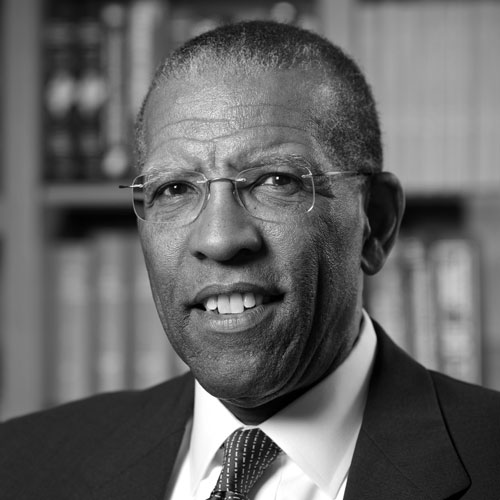“Healthcare is best delivered by teams,” says Jim Blazar of Hackensack Meridian Health (HMH). He’s only been the executive VP, chief strategy officer since the beginning of 2016, but decades of experience at Hartford Healthcare Cleveland Clinic and Henry Ford Health System have schooled him on the power of partnerships, particularly in wellness-centered communities.
“It’s not just about the procedure a patient has, but also how we can extend the care outside the four walls of the hospital to help them deal with their diabetes, their single-parent family situation, and their mental health issues, to name a few,” he says. “The best way to raise the next generation of healthcare providers is to create partnerships that help us focus on population health—keeping families well.”
Blazar’s interest in the healthcare industry developed quite early. At age twelve, he saw his father permanently hospitalized with multiple sclerosis, passing away when Jim was only fifteen. But he says his dad received amazing care at his Veterans Affairs facility, and that created a lasting impression that made a young Jim eager to contribute to healthcare.
As Blazar honed skills with which he could make an impact in healthcare, he a found an inspired match in HMH because the company has an appreciation and interest in partnerships—fueled, in large part, by co-CEOs Bob Garrett and John Lloyd.
“Developing strategic partnerships is one of my sweet spots,” Blazar says. “I came here because I was eager to see the organization grow by leveraging and optimizing the expertise of other partners. Here, one plus one equals three. You can actually create something better than what you can on your own.”
When Blazar arrived at HMH, partnerships were already part of the DNA of the company and its legacy organizations, which made Blazar a natural fit. These collaborations included fitness and wellness centers, an ambulance company, urgent care facilities, and more.
The opportunity to create a new partnership came within Blazar’s first week at HMH, when he learned of Memorial Sloan-Kettering’s (MSK) interest in joining forces. He says, however, that MSK had already suggested a partnership that was interesting but wouldn’t be a win-win for HMH.
Uber x HMH
A win-win of a different kind was on its way after Hackensack Meridian Health (HMH) co-CEO Bob Garrett met Uber CEO Travis Kalanick in early 2016. Garrett wanted to do something progressive with Uber due to the company’s innovative nature. At the time, Hackensack University Medical Center had a problem with congestion on its campus and transportation for many of its patients. The partnership analyzed the campus pick-up and drop-off spots and created multiple locations that could be easily accessed by Uber drivers. Patients can get access to Uber through a Hackensack app or its website and receive a discount on their first ride. The John Theurer Cancer Center can also arrange rides through a grant for patients that cannot afford the fare.
The result is a first-of-its-kind partnership between the transportation networking pioneer and a health network—one that takes people both to and from various HMH hotspots with relative ease while also lessening congestion on its campuses. While Uber provides additional access for patients, HMH is able to track more data for when they need rides and where they go on campus. The number of rides doubled in the first six months, and the partnership is now being extended across the entire health network.
But by the end of 2016, the two institutions signed a deal that Blazar says is the first of its kind in the United States. Most partnerships with cancer centers have the hospital or health system paying the cancer center for use of its brand and some of its expertise. In this arrangement, however, the John Theurer Cancer Center at Hackensack University Medical Center brought clinical expertise and programs that, in many cases, equaled MSK.
Together, HMH and MSK have some of the largest programs in bone marrow transplant, multiple myeloma, and colorectal, breast, and lung cancer. In the partnership, no money was exchanged. Instead, an operating board that comprises representatives from each organization oversees the partnership. The board functions with the advice of a formal clinical council—which is led by internationally recognized experts in all subtypes of cancers from MSK, the John Theurer Cancer Center, and HMH—and a formal executive advisory group that comprises institutional leaders in key areas.
The Memorial Sloan-Kettering Hackensack Meridian Health partnership now looks to develop a single standard of care whether patients visit an MSK or HMH location. “As they progress, the standard will be updated and upgraded,” Blazar explains. “Going forward, the partnership plans to open up to ten new centers that will be a fifty/fifty joint venture.” It’s not a merger, he explains; it’s a partnership of equals.
The partnership also answers the call from former Vice President Joe Biden’s Cancer Moonshot initiative, which asked for unprecedented cooperation among leading cancer centers to make more therapies available to more patients and to improve the ability to prevent cancer and detect it at an early stage.
In more tangible terms, the two groups jointly have the second-largest bone marrow transplant program in the world and one of the largest multiple myeloma programs in the country. But the whole deal happened without commingling any of legacy organizations’ money. “Everyone saw the value—that we would actually have better and faster cures for cancer, take care of more patients, and save more lives than if we did it separately,” Blazar says. “The joint expertise of those two places is unsurpassed anywhere in the world.”
Of course, partnerships like this don’t materialize out of thin air. Blazar says sharing a joint vision and developing clarity from both sides is critical; tackling the difficult elements of the partnership first is just as important, too. Blazar says that this gives people on both sides confidence for the rest of the project rather than kicking the can down the road. Conversely, realizing early on that not everything will work—or that a partnership isn’t in the best interest of everyone involved—is just as important. The approach can be adjusted or the parties can agree to end dialogue and move on to partnerships that create mutual value.
“The best way to raise the next generation of healthcare providers is to create partnerships that help us focus on population health—keeping families well.”
But if the organization tracks a partnership’s metrics to ensure progress is being made and expected yields are coming to both sides, then the union’s success is tough to dispute. All of HMH’s partnerships have steering committees or operating committees that are responsible for achieving milestones and evaluating progress toward the vision.
HMH was also in the early stages of a partnership with South Orange-based Seton Hall University when Blazar came on board. Now, the Seton Hall–Hackensack Meridian School of Medicine is set to be New Jersey’s only private medical school, and it’s on track to seat its first class in 2018.
The school will be located on the former campus of multinational healthcare company Hoffmann-LaRoche, which benefits the community by putting the space back to use and training the next generation of medical students right in New Jersey’s backyard. Seton Hall will also move its Nursing School and Allied Health professionals to the campus and develop integrated curriculum so that these medical disciplines are learning together as teams rather than operating in silos.
In addition to the new medical school, HMH will open an Innovation Center on the campus that is connected to the medical school. This, Blazar says, will be an economic driver for the region. He has been involved with developing strategy to attract new strategic partners to the campus and create innovation incubators that will help transform healthcare. He is also partnering with the medical school’s dean to create and execute the brand strategy for the medical school.
“The partnership with Seton Hall and HMH is unique because both organizations are supporting integrative approach to education,” he says. “It’s a win-win for New Jersey, for the medical community, and for economic development on that campus.”
But whether a partnership started before or after Blazar’s tenure at HMH began, his intentions remain the same. “It’s about trying to immerse yourself and realizing the vision,” he says. “It’s about rolling up your sleeves and trying it out, learning from your mistakes, getting with the right people, and making improvements.”
Bendigo was focused on the business of sports, but was challenged to rebrand and lead marketing for a major healthcare system in 2011. Now, we are dedicated to bringing these worlds together. We support healthcare executives navigating the complex world of sports, including strategy, evaluation, negotiation, activation, media, research, and facilities rights.
Healthgrades gets more than thirty million visits every month from consumers searching for the right healthcare in their community. When your health system partners with Healthgrades, we can show your practitioners how to attract and retain those prospective new patients. Operating the nation’s largest healthcare-focused review site gives us a better understanding of how Americans choose providers and what your organization can do to grow demand for your services, while our strategies and solutions empower you to act on that information. To learn how Healthgrades can help you reach and acquire more patients, visit healthgrades.com/hospitals or call 855-665-9276.

